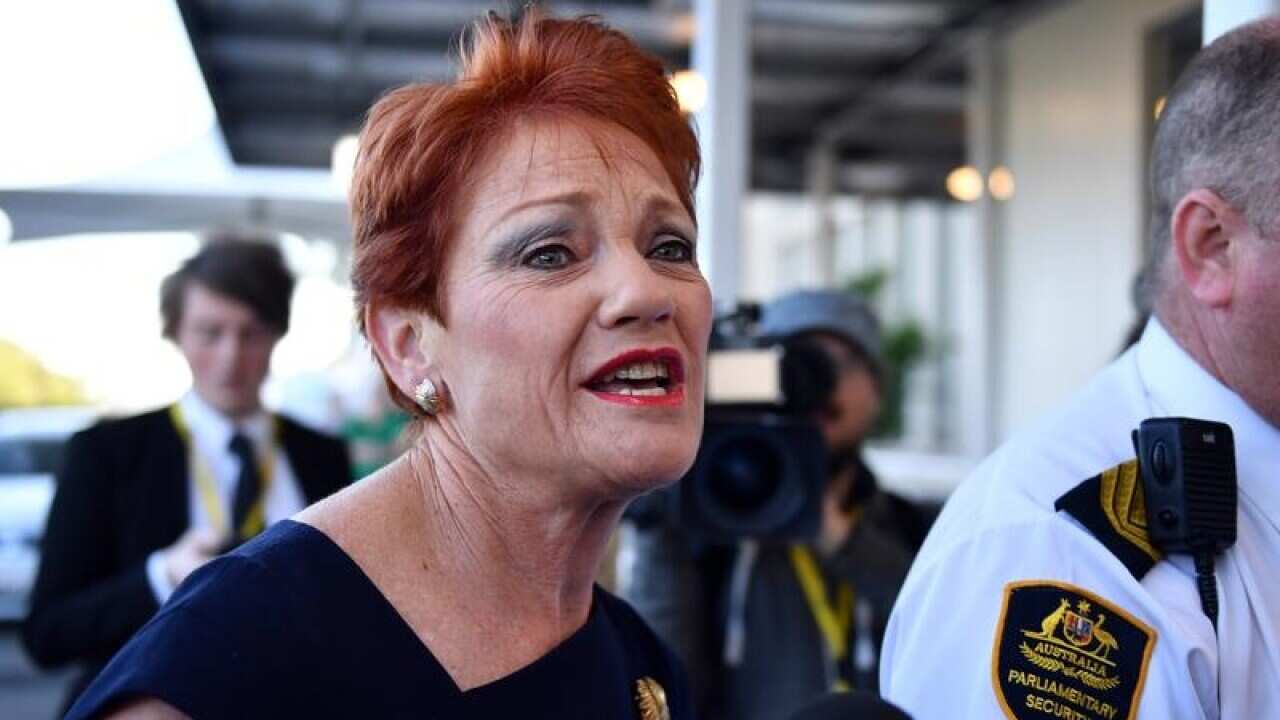To see the damage a rogue candidate can cause, the Liberal party only needs to look to its own history and Pauline Hanson.
The Queensland fish-and-chip shop owner was preselected as a Liberal candidate for the seat of Oxley in 1996.
She was disendorsed shortly before the election due to her comments about indigenous Australians, but she managed to win the seat anyway.
More than 20 years later, the now-Senator Hanson is still causing problems for the Liberal party after introducing a series of controversial men into Australia's public life.
Senator Hanson gave Fraser Anning, Malcolm Roberts, Brian Burston, and David Oldfield to the nation, and provided platforms for ex-Liberals Steve Dickson and James Ashby.
It's quite a lineup.
She's also a key player in preference deals and Senate negotiations.
All this from one rogue candidate in a 1996 preselection.
Prime Minister Scott Morrison has his own rogue candidates and, unfortunately for him, they're mainly showing up in the state his party is struggling in.
One Victorian candidate was disendorsed for anti-Muslim comments, another for anti-gay comments.
The Victorian Liberals have been riven with factional problems for years, as conservatives have taken over the party in the nation's most progressive state.
And in Tasmania, Lyons candidate Jessica Whelan came under fire for social media comments saying women who support Islam should be mutilated and sold as slaves.
Whelan put out a statement arguing screenshots of the comments had been doctored and referred it to the Australian Federal Police.
"I don't think it's hard to believe in this day and age that images can be doctored," Morrison said this week in Launceston.
But his staff were careful to shield Whelan from the media during an agricultural show outside Launceston on Thursday, and she escaped in a car rather than answer questions.
One of the problems with candidates going rogue is it starts to eat up valuable time for leaders trying to sell a message.
Morrison spent large portions of his media conferences on Wednesday and Thursday dealing with the fallout of disappointing candidates.
Labor leader Bill Shorten also lost a Senate candidate in the Northern Territory, after he shared anti-Semitic comments, while another candidate for the seat of Melbourne is under fire for posts he made in 2012.
Beyond the obvious problems of losing candidates, the major parties are struggling with a loss of trust.
The latest Newspoll had the coalition's primary vote at 38 per cent, Labor's at 37 per cent.
To put that into perspective, the coalition has dropped below 40 per cent primary just once since World War II.
That was in 1998, when John Howard got 39.5 per cent of votes and it was just enough for him to sneak over the line with preferences.
Malcolm Turnbull got a one-seat majority in 2016 with 42 per cent of the primary vote.
If the coalition stays on 38 per cent then the election looks lost.
Labor's primary vote is solidly up from its two post-War lows of 33.4 per cent in 2013 and 34.7 per cent in 2016.
But the party has been below 40 per cent in seven of the past 10 elections.
The voting public is fractured, disenchanted with the major parties and willing to vote for independents or self-promoters like Clive Palmer.
This is hurting both sides' chances of winning outright.
"What's happening here is Australian democracy is under threat," Shorten said in Adelaide.
"What we are actually seeing is Mr Palmer is trying to buy the Australian democratic system with $70 or $80 million."
Palmer himself was a life member of the Liberal National Party and a donor until he went rogue in 2013.
Now Palmer and Senator Hanson's preferences will be key for the coalition in marginal seats, especially in Queensland and Western Australia.
It can be impossible for parties to know which fringe candidate will catch the imagination of the public and forge a career for themselves.
But the lesson of Hanson in 1996 shows parties need to be much more careful about who they preselect, or they risk unleashing decades of problems for themselves.
Share

